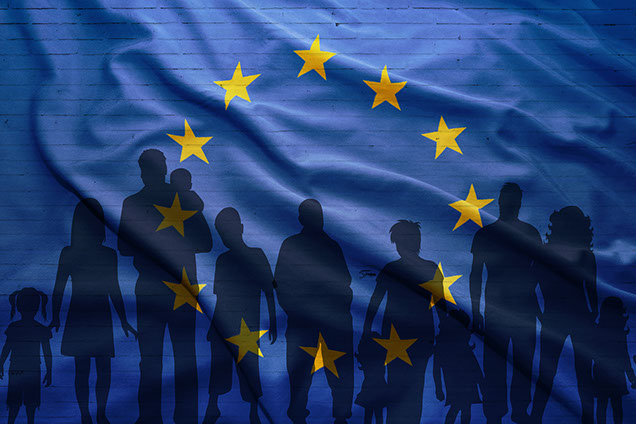A recent survey by Pew Research asked Europeans how they viewed the European Union (EU); the vast majority responded favourably. The survey also asked them if they wanted their government or the EU to control immigration; the vast majority chose their government, even when migration came from within Europe.
Under the terms of the EU, they cannot have it both ways, said Dr Stefan Auer, who has a research project funded by the General Research Fund on the crisis of a borderless Europe.
“The European integration experiment was meant to abolish nation states in favour of a supranational one under which borders would melt away so people, goods, services and capital could move around freely,” he said.
“But the crisis of Syria, and the arrival of one million refugees in Germany alone since September, 2015, have intensified questions about this conception of the EU.”
Dr Auer shares the scepticism that found full voice in last year’s Brexit vote, even though he is a political refugee himself having fled communist Czechoslovakia in the 1980s for Germany.
“The fact that decent political communities require a certain level of cohesion makes borders necessary,” he said. There are also ethical considerations in terms of the obligations countries should be expected to have towards strangers.
Germany’s policy of openly welcoming refugees to stay has created incentives for people to risk their lives to go there, even if they are not in imminent danger – for example, if they have already made it out of Syria to relative safety in Turkey. Moreover, having large numbers of refugees arrive in the community risks undermining social cohesion and the original goal of helping others.
“When people feel their government has lost control over migration, the outcome would be that they become more hostile towards newcomers. That is not good news for newcomers or the existing social order,” he said.
Such effects have led other countries in the EU to start questioning their obligations, such as Hungary, Poland, and most prominently the UK.

![]() When people feel their government has
When people feel their government has
lost control over migration, the outcome
would be that they become more hostile towards newcomers. That is not good
news for newcomers or the existing
social order. ![]()
Dr Stefan Auer
Democracy eroded
Before the Brexit vote, the British government sought concessions on border controls from the EU and failed in its goal. Brexit proponents then took up the refrain that Britain needed to take back control of its borders.
Dr Auer believes the Brexit vote reflects what many in Europe are feeling, not only about migration but also the EU’s economic policies which are hurting countries like Greece and Spain and benefiting Germany the most.
“Even France and German can’t agree on fundamental questions of economic policy. The French are in favour of Europeanising problems that Greece, Italy, France and Spain have, but from Germany’s perspective, Europeanising them means Germans end up paying for everyone else. So all the problems are still there,” he said.
More importantly, the structure for addressing these problems has become less and less democratic. “My key commitment is to democracy. Is the current EU still advancing that cause? That’s where I put a big question mark because the push towards a supranational quasi federation has eroded democracy at the national level, without substituting for it at the EU level. Over the last decade at least, I don’t think you can say that it’s been conducive to democracy.”
An answer to this dilemma would be if members could reclaim some of their powers as Britain had demanded, he said. The member states need only look to their own recent history for an example of how this could work. Before the Schengen Agreement in 1985 to abolish borders between members and the Maastricht Treaty in 1992 to formalise the European Union, member states maintained a special relationship while having control over their own affairs.
Interestingly, on Brexit, Dr Auer believes the strain of trying to maintain EU unity is likely to weaken its hand. “It will be much harder to maintain unity among the 27 member states. Each of them thinks itself sovereign even though they are not any more, and quite a number of governments openly oppose the EU. It will be easier for the UK to maintain its position, whatever government it ends up with, than these 27 independent states,” he said.

The Case For
Stronger Borders
For ethical reasons and the sake of democracy, Europe should tighten its border controls, argues Dr Stefan Auer, Programme Director in European Studies in the School of Modern Languages and Cultures at HKU.
A refugee passes a baby through the fence at the Hungarian-Serbian border in Röszke, Hungary on August 28, 2015. This photo was taken by Australian photographer Warren Richardson when he camped with the refugees on the border and was selected as the World Press Photo of the Year 2015.
(Courtesy of Warren Richardson)
Next
Back



